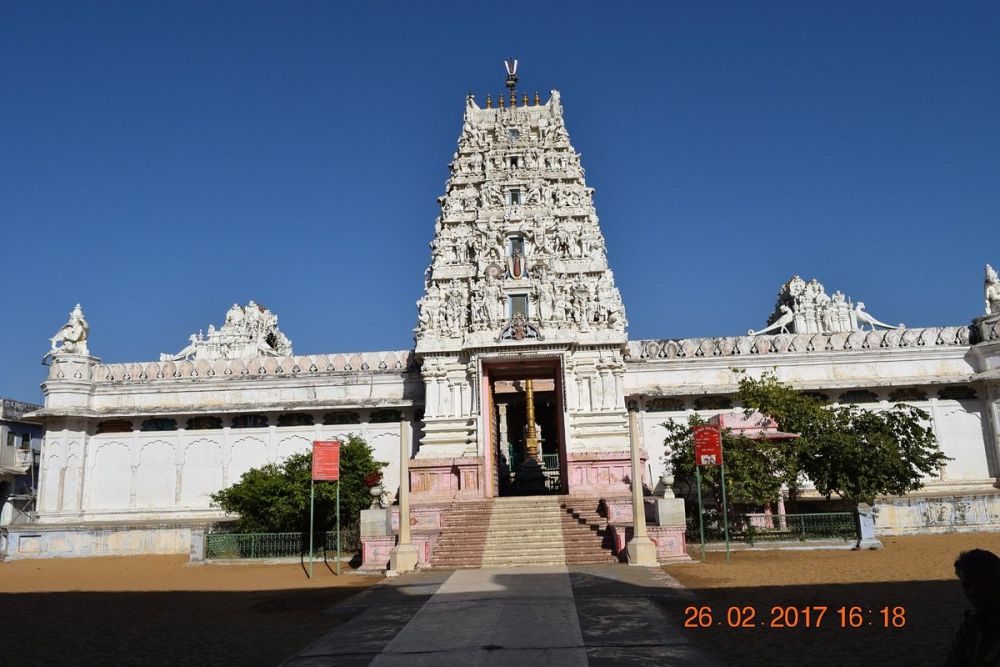

Situated in the heart of the historic city of Ajmer in Rajasthan, India, is the Rangji Temple, a place that is not only of spiritual significance but also a fine specimen of architectural beauty. Ajmer, known for its composite culture and religious diversity, has been a popular destination for pilgrims and history enthusiasts alike. The Rangji Temple adds to the city’s charm by bringing a unique blend of South Indian (Dravidian), Rajput, and Mughal styles of architecture.
The Rangji Temple was built in 1823 by Seth Puran Mal Ganeriwal from Hyderabad. The temple is dedicated to Lord Rangji, believed to be an incarnation of Lord Vishnu. The temple's history reflects the societal and cultural fabric of the time, showcasing the fusion that has been a hallmark of the regional diversity in India.
Tourism in Ajmer, and particularly at the Rangji Temple, has grown steadily over the years. Historically, Ajmer has been a pilgrimage center, known for the famous Dargah Sharif of Sufi saint Khwaja Moinuddin Chishti. The addition of the Rangji Temple attracted not only the Hindu devotees but also travelers interested in architecture and history.
The temple's intricate designs and carvings along with the vibrant celebrations during festivals like Brahmotsav, have become a draw for both domestic and international tourists. With the rise of heritage tourism in India, places like Rangji Temple have become integral stops on the itineraries of those looking to explore the cultural depths of the country.
In recent years, there has been an increase in thematic and experiential tourism in Ajmer. Visitors are keen on exploring local experiences that include food tours, historical walks, and attending traditional rituals at the temple. Tourism nowadays is as much about immersion and understanding local customs, as it is about viewing historic sites.
Sustainable tourism practices are also gaining momentum. Efforts are made to preserve the temple’s architecture and the city’s heritage for future generations. The local government and tourism boards are increasingly focused on developing infrastructure that supports sustainable tourism, ensuring that the Rangji Temple and Ajmer’s broader tourism sector continue to thrive without causing harm to the environment or the local culture.
Rangji Temple stands testament to Ajmer’s status as a melting pot of cultures and traditions. With its growing popularity amongst tourists, the temple receives requisite attention for conservation and promotion, thereby promising to be a beacon of heritage tourism in Rajasthan for years to come.